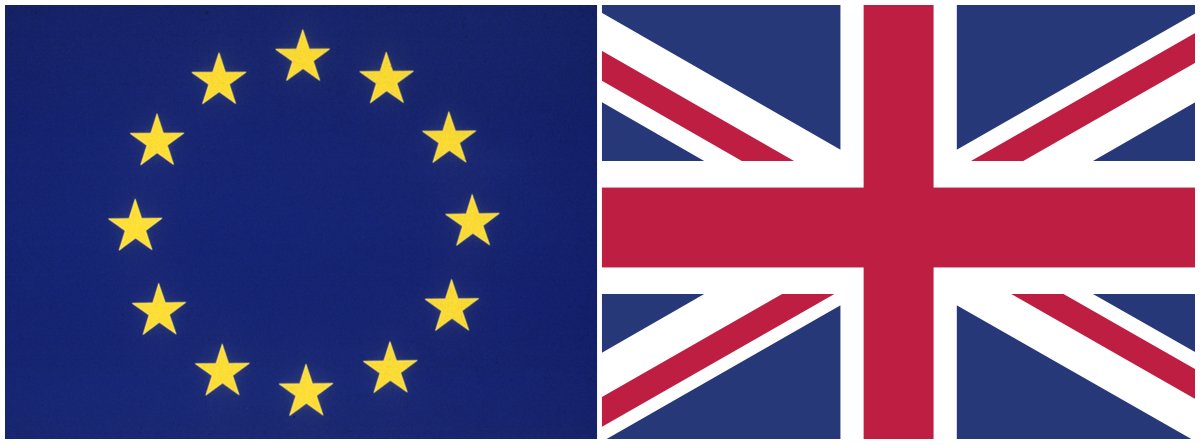More than a year on from the European referendum in the United Kingdom which delivered the vote for Brexit, the EU has maintained a largely united
More than a year on from the European referendum in the United Kingdom which delivered the vote for Brexit, the EU has maintained a largely united front. Soon after the result, leaders made clear the priority was to preserve the unity of the bloc and the integrity of the Single Market.
As Euronews reported last September, despite differences over the EU’s future direction and the speed of the Brexit process, EU institutions and political leaders were largely singing from the same hymn sheet in reminding the UK that key principles such as free movement were inviolable.
The European Council determined three broad phases for the negotiations: a preliminary stage to deal with the UK’s exit bill, the question of citizens’ rights and the Irish border; a “divorce treaty” to tackle the actual withdrawal, and finally the question of the UK’s position regarding future trade. Negotiators were selected and agreed for the Council, Commission and Parliament.
Nearly 13 months on, several “position papers” have been published – available and updated here. Negotiating directives build on earlier guidelinescovering the main principles.
The papers tackle some of the most controversial matters such as the financial settlement resulting from Brexit and citizens’ rights, as well as other matters as diverse as nuclear material, police and judicial cooperation, and how to treat ongoing legal cases.
Meanwhile the UK government triggered Article 50 to set the formal exit process rolling on March 29, Prime Minister Theresa May setting out the British approach in a letter to European Council President Donald Tusk. A White Paper followed and more recently detailed notes were published on the government’s website about its Repeal Bill now before Parliament. Its position on citizens’ rights was published on June 26. The government followed up last week with position papers on judicial proceedings (to end the jurisdiction of the European Court of Justice); on nuclear materials and safeguards and on privileges and immunities regarding EU organisations.
Citizens’ rights
Published at the end of May, the Commission’s “Essential Principles on Citizens’ Rights” develop its previously-expressed assertion that people should not lose existing EU rights after Brexit.
EU nationals in the UK and Britons in Europe should enjoy the same level of protection and equal treatment under “Union law”. Five years of continuous legal residence in another EU country should bring the right to acquire permanent residence. The rights should apply to anyone who has resided in another country, not just those actually doing so on the date of the UK’s exit. The deal should include family members as defined by social security regulations, with rights protected for life.
Finally, the document boldly declares that the Commission should have “full powers” to monitor citizen’s rights, with the Court of Justice having “full jurisdiction”. This last point puts the EU on a collision course with the British government, whose own policy position states that the ECJ “will not have jurisdiction in the UK” after Brexit, staking its claim for UK courts to enforce commitments which “will have the status of international law”.
The controversy surrounding citizens’ rights was one few envisaged at the time of the referendum. But Theresa May’s refusal to guarantee unilaterally the rights of EU nationals in the UK, and insistence that a deal must be reciprocal covering Britons in Europe, has caused uncertainty and has been widely criticised, campaigners often denouncing the idea of people being used as “bargaining chips”.
The New Europeans campaign group and Britain in Europe think tank published a report praising the EU for setting an example with an “ambitious agenda” for protecting citizens’ rights, and criticising the UK’s offer for “shortcomings” over what it argues are restrictive interpretations regarding plans to give EU nationals “settled status”.
Some observers believe that despite their differences, both sides can find common ground and have a vested interest in moving on to negotiations in other fields. Former Liberal MEP Andrew Duff of the European Policy Centre has written in a discussion paper that the two sides are not as far apart than has been reported. He argues that the EU is on sticky ground in “on the one hand, wanting to treat the UK like a third country and, on the other, insisting on permanent, continued direct jurisdiction of the European Court of Justice”.
Paying the bill
In its position paper, the Commission argues that both sides should accept obligations resulting from the UK’s EU membership. The UK must honour its share of those obligations, it says.
A single settlement should cover the union budget, membership of the various bodies and institutions, as well as the UK’s participation in specific funds and policies – all this covering a period through to 2020. After Brexit the UK should continue financing the European Investment Bank even though it would no longer be a member, although its contributions would decrease.
The Commission paper says the sums involved should be calculated according to established mechanisms.
Despite the Foreign Secretary Boris Johnson’s claim that the EU could “go whistle” over reported “extortionate” demands, in a written statement to Parliament the UK has explicitly recognised there will be a “financial settlement” and that “the UK has obligations to the EU”.
There has been disquiet in EU circles that the British government has done little to prepare public opinion for compromises ahead, especially as one of the central claims of pro-Brexit campaigners was that the UK would get money back from the EU. However, agreement will be needed before the substantive question of the UK’s future relationship with the bloc can be addressed.
The Irish border
In its general negotiating guidelines for Brexit, the Commission talks of “the unique circumstances on the island of Ireland”. The UK’s divorce from the EU will create a new frontier between Northern Ireland outside the bloc, and the Republic inside the union. The EU highlights its role in the peace process enshrined in the Good Friday agreement, and says “flexible and imaginative solutions” will be needed to avoid “a hard border”.
The lack of a more detailed EU position so far may hint at recognition that a political solution will be needed to avoid Brexit reviving a centuries-old problem. Commentators have focused on the implications of the UK leaving the Customs Union. Reports have suggested that the fine detail may be left until later in the negotiations. German officials, concerned for the integrity of the EU’s border, are said to have questioned the need for a totally open border.
Transitional arrangements
Although negotiations are not due on a future post-Brexit deal until after the priority matters are sorted, the EU recognises the importance of paving the way for an orderly withdrawal. A position paper on governance published at the end of June calls for a Joint Committee, including representatives from both sides, to manage the Brexit process.
The EU’s earlier guidelines note the UK’s wish to leave the Single Market – and its recognition that there can be no “cherry picking” – and support working towards a free trade deal “based on the Union’s interests”. Such an agreement should be “balanced, ambitious and wide-ranging” but must not undermine the “integrity and proper functioning” of the Single Market – and should ensure a level playing field with safeguards against unfair competition.
Jurisdiction
The EU’s negotiation directives state that a Brexit agreement should be implemented and enforced fully respecting “the autonomy of the Union and of its legal order, including the role of the court of Justice of the European Union”.
The question of the ECJ’s jurisdiction, including but extending beyond citizen’s rights, could create a major stumbling block in the negotiations. Last October Theresa May told the Conservative Party conference: “We are not leaving only to return to the jurisdiction of the European Court of Justice. That is not going to happen”. The Conservative manifesto for the recent general election said future British laws would be interpreted by judges in the UK, not in Luxembourg.
However the European Court plays a central role as arbiter of the EU’s rules and regulations – affecting not just the bloc’s members but those who deal with it. The difficulty for the UK is that maintaining access to the Single Market, or involvement with EU bodies or programmes, will find it hard to escape the ECJ’s tentacles. That is why some so-called hardcore Brexiteers favour cutting all ties with the EU.
According to Andrew Duff, Theresa May and her party need to prepare to make “a major concession on the future role of the ECJ”. He believes this should not be too difficult as far as any transitional period is concerned. In the longer term he envisages an association agreement between the EU and the UK with perhaps “a new type of joint UK-EU juridical tribunal”, replacing the ECJ but maintaining links with the Court and respecting its decisions.
Other matters
The EU’s framework for future relations with the UK states aims for “strong and constructive ties” extending beyond trade. It says the EU is ready for partnerships in areas covering crime, security and defence, and foreign policy. However, written into clause after clause in the documents are references to the union’s interests and “autonomy”.
They also throw up more potential obstacles. Clause 24 of the negotiating guidelines caused a storm when they were published: no EU-UK agreement will apply to Gibraltar, it says, without agreement between the UK and Spain. The question of sovereignty over the Rock has long been disputed. Brexit means the EU will in future represent Spain’s interests, but no longer those of the UK.
The British government has already conceded some points it had previously opposed: on the question of the timetable of the talks, for example, and more recently by accepting the principle that there will be an exit bill. Many observers have commented that the EU appears far better prepared and organised than the British side.
Politically the EU has also been bolstered by national elections in recent months – not least Emmanuel Macron’s election to the French presidency – that have kept populist forces at bay. Meanwhile the British government – weakened in Parliament following the snap UK election in June – appears to be divided over its own approach to its post-Brexit future.
euronews.com


